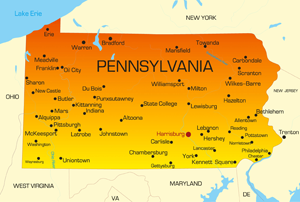A portal website bringing together vital information about natural gas and natural gas vehicles.

| Legislative Session Dates: | January 7 - No End Date Specified |
| Legislature Website: | http://www.legis.state.pa.us/ |
This state was last examined and updated in November, 2016.
